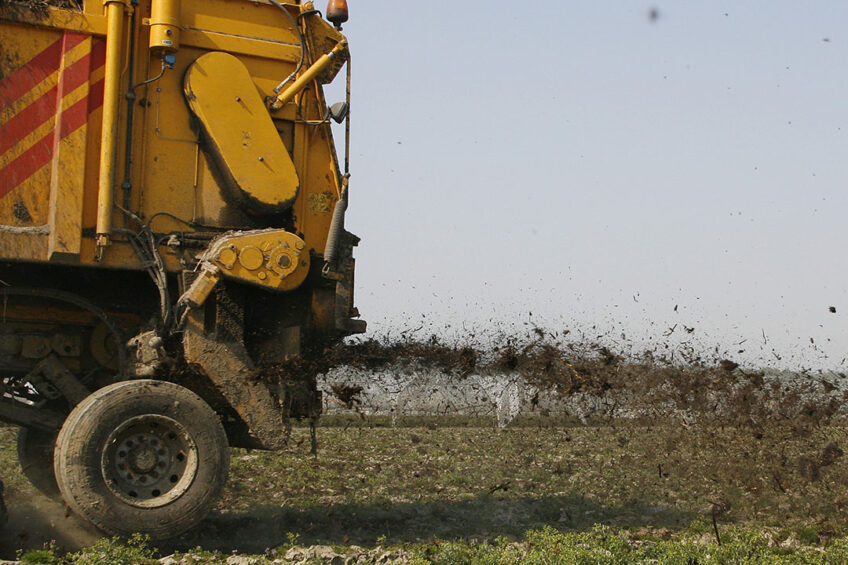Poultry litter saving money and helping the environment

Using poultry litter has slashed ammonium nitrate costs and boosted soil health, according to arable and poultry farmer, Will Oliver.
Oliver, who farms on the Leicestershire/Warwickshire border, put up a poultry unit in 2019 because he wanted to get organic manures back into soils, having left the beef industry in the early 2000s.
He said it felt as if he was taking everything from his soil but poultry ticked the right boxes and he now has a 180,000 bird broiler unit supplying poultry to Avara, who supply fast-food restauranta, Nandos, and chains Tesco and Asda, but it’s also boosting his wheat business. “We are now taking nearly 2,000 tonnes of poultry manure which is a great asset to our arable enterprise.”
Integration of poultry business helping nutrient management
Oliver said a lot of people saw manure as a waste product, but he weighs every load and trailer that leaves the farm, tests every batch, and takes the relevant amount to each site.
“Everything is supplied to the exact crop requirement,” he told the Championing the Farmed Environment podcast. “Nutrients are becoming very expensive at this current time and so we need to treat this muck as a valuable fertiliser.”
Poultry litter alone last year slashed ammonium nitrate costs on his farm by more than £26,000.
Regenerative farming with innovative Eggmobile concept
On Angus MacIntosh’s farm, chickens are housed in Eggmobiles and are moved daily to live off the land. Read more…
He said he was utilising the manure, which saves on inputs, but the crop is growing at an optimum level, and he knows that he is not over-feeding it, which can lead to lodging and limiting leaching so losses to the environment are cut. He has changed its rotation policy slightly to utilise his organic manures, with a focus on more spring applications. Control of leaching with autumn applications is more difficult, he stressed.
Soil testing
Soil testing, he said, was the foundation for his cropping regime. He tests his soils at least every 5 years and knows what’s working and what needs to change. He has trialled applying poultry manure in the spring to a standing wheat crop which, he said, was the perfect way to do it, because it was being applied to a growing crop: “The only disadvantage is that it can’t be incorporated, but we are working in an environment where we use less tillage and stuff anyway so if we can utilise our manures in a no-till system that’s surely a good thing.”













